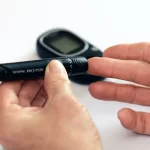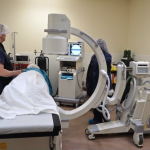Acute wounds will heal quickly, but if you have diabetes or poor immunity you will develop chronic wounds that recur or heal slowly. A wound care Humble doctor will recommend the treatment for chronic wounds based on your age, nature of the wound, and health condition. Some chronic wounds on the skin occur due to trauma, infections underlying medical conditions, and skin cancers. These are the causes of chronic wounds and how to care for the wounds to avoid long-term complications.
The Causes of Chronic Wounds
Significant trauma might lead to injury on the skin, which affects the deep skin layers, thus causing wounds that don’t heal quickly. The damage to the deep tissues leads to infection, fluid retention, inflammation, and pain that doesn’t go away. Persistent, localized pressure on the skin from immobility leads to bedsores and pressure injuries that impact deep skin tissues.
Moreover, invasive surgery might leave deep incision wounds which get infected and heal slowly, leading to recurring wounds. Diabetes and vascular disease result in foot wounds and sores due to weakened immunity; wounds might not heal quickly and result in chronic pain. Furthermore, trophic cancer and infections result in wounds that don’t heal and might lead to amputation without proper care.
Chronic Wound Diagnosis
Some people might not seek care for the wound, but you can deal with the wounds by seeking medical care. Your doctor will examine the wound physically and assess the blood supply to the area and the local nerve condition. They may ask about their medical history, which informs them about the recent surgeries, other chronic medical conditions, and the drugs taken to deal with the recurring wounds. They will conduct wound biopsy, undertake blood and urine tests, and culture the wound to determine the presence of disease-causing pathogens.
Proper Wound Care
The doctor will educate you on proper wound management; you can start by cleaning the wound, removing dirt and debris, and cleaning it gently while showering. You should avoid using strong body soaps on the wound and opt for clean, warm water; you can use a soft cloth on the wound to avoid causing further damage to the tissues and the nerves.
You can opt for tetanus injections if the wound results from traumatic injury; the vaccines help guard against tetanus which affects the joints leading to further health complications. You can opt for deep wound exploration for deep and recurring wounds; your doctor will use anesthesia for wound exploration, remove the dead skin surgically and close large wounds with stitches and staples. A moist dressing will work for chronic wounds; you can take medications and treat infections to avoid pain, inflammation, and fever. Sometimes you may need aids like support stockings and wheelchairs if the wound reduces the ability to walk.
Chronic wounds lead to pain, inflammation, and redness and impact your ability to accomplish everyday activities. You should clean the wound immediately after the injury and see a doctor who will treat it and educate you on proper care to improve health outcomes. A moist dressing will work for chronic pain as it promotes swift healing; you should take the prescribed medications and seek proper support like the wheelchairs, which improve the healing process.








